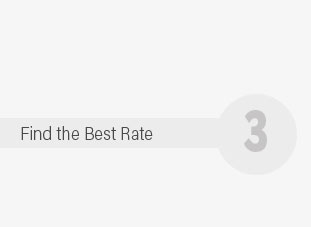 |
 |
 |
|---|
 |
 |
 |
 |
|---|
 |
 |
 |
 |
 |
 |
|---|

Understanding the Nuances of Changing Car Insurance for a New CarPurchasing a new car often brings with it a sense of accomplishment and excitement, yet it also necessitates a crucial task that many tend to overlook until the last minute: changing your car insurance policy. This transition, although seemingly straightforward, is rife with nuances and considerations that could significantly impact your driving experience and financial well-being. Why Change Your Car Insurance? When you upgrade to a new vehicle, your existing car insurance policy may no longer be adequate or cost-effective. New cars often come with different values, safety features, and risks compared to your previous vehicle, which insurance companies will consider when calculating your premium. Ignoring these changes can result in either underinsurance or unnecessary costs. Therefore, adjusting your insurance is not just a formality; it is a necessary step in protecting your investment and ensuring compliance with legal requirements. Key Benefits of Updating Your Policy
Steps to Transition Your Car Insurance To effectively change your car insurance when acquiring a new vehicle, begin by informing your current insurance provider about the change. They can provide options for amending your policy or suggest alternatives that better suit your new car. It is also wise to obtain quotes from multiple insurers to ensure you are receiving the best rate and coverage for your needs. When comparing policies, pay attention to the coverage limits, deductibles, and additional benefits each offers. Finally, ensure that your new policy is active before driving your new car to avoid any lapses in coverage. Conclusion Transitioning your car insurance to a new vehicle is a process that demands careful consideration and action. By understanding the importance of accurate coverage, cost efficiency, and legal compliance, you can make informed decisions that protect your new investment and provide you with the peace of mind to enjoy your new car fully. Remember, the right insurance policy not only safeguards your vehicle but also enhances your overall driving experience. https://www.reddit.com/r/personalfinance/comments/savq89/buying_a_new_car_dont_know_how_to_properly/
There is no transfer really. You buy a policy for the new car. When ready, you cancel the policy for the old car and get a prorated refund if that policy was ... https://www.progressive.com/answers/new-car-insurance/
You can transfer your insurance to your new car, even while you're at the dealership, by logging into your policy or calling 1-866-749-7436. Looking for more ... https://www.shelterinsurance.com/learningcenter/insurancetips/transferringyourautoinsurancefromonecartoanother/
When you get a different car, you will have a certain amount of time as a "grace period" to transfer your insurance to your new vehicle, and that exact amount ...
|
|---|